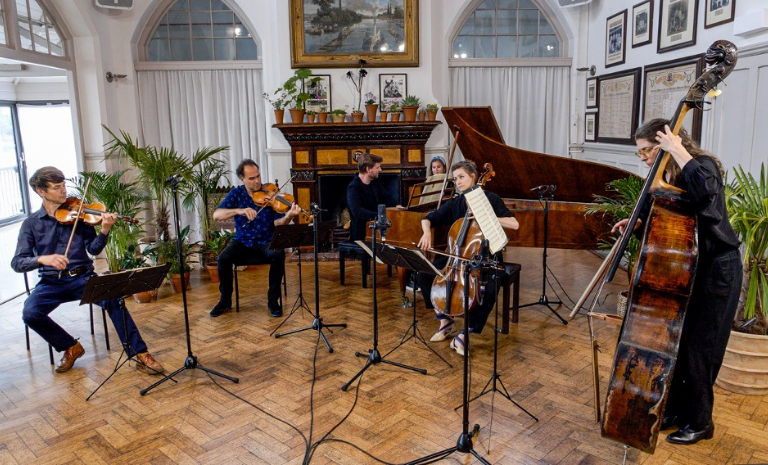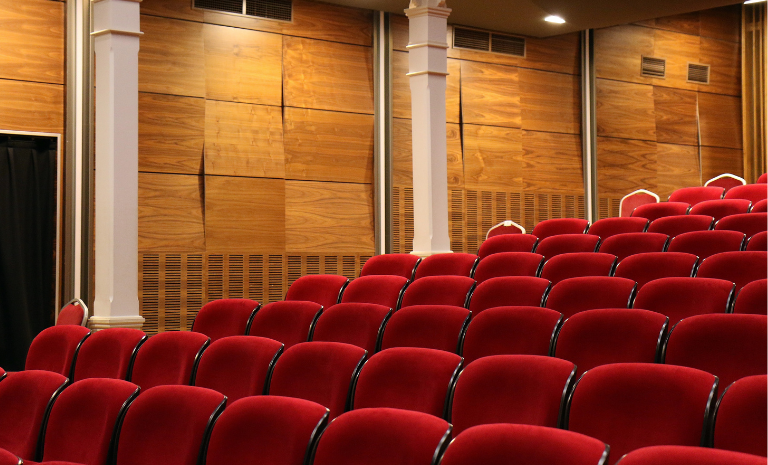Arts and Culture
Business Strategy
COVID-19
Virtual Experiences
Article
Insights & Innovation
792b25e4-2f53-44ed-a31a-cf87ae79357c
5 min
https://edge.sitecorecloud.io/tessituraneab9a-tessiturane5642-staging-5396/media/Images/Discover-Images/Thought-Leadership/meagan-carsience-unsplash-768x465.jpg?h=465&iar=0&w=768
Digital transformation in arts & culture: An interview with Kristin Darrow
A refounding moment
12/2/2020
5 min
Sometimes, it takes extraordinary circumstances to bring about change in an industry.
This year, we’ve seen the pace of vaccine development accelerate from a decade to a matter of months. Similarly, the arts and cultural industry has undergone a profound digital transformation, driven by virtual experiences.
Our friends at Queue-it sat down (virtually) with Kristin Darrow, SVP of Product, to discuss this odd and devastating moment in time for arts and culture that is simultaneously spurring new models of programming and revenue for organizations around the globe. Below is an excerpt from that conversation; read the full article on the Queue-it blog.
Queue-it: Currently, we’re in a place where some parts of the world are back to sheltering in place, while others are open with limited capacity, and still others are allowing larger gatherings again. Regardless of location, arts and cultural organizations are now thinking and actively planning for a full reopening. As we look towards restrictions being lifted on events, what is the role of technology in arts and culture now?
Kristin: These past months, I’ve mentally noted the familiar maxim “the show must go on” — the very idea that performance and “the show” are an unstoppable force, backed by centuries of practice and tradition. The show. Must. Go on. The only thing that could stop the momentum of the live production engine worldwide would be something like a pandemic. As the global crisis continues, with some arts and culture organizations still closed, some partially open, some entirely open, some online only, my observation is that organizations are overcoming the shock of the situation and are firmly in the innovation mind space.
For the entire industry, this is a refounding moment.
Technology has a lot to do with this moment. All of this innovation of the artistic medium and format is sitting on a large-scale digital transformation. Organizations (as well as visitors and ticket buyers) are adopting and adapting to new technology to solve problems and create experiences differently.
As a product builder, I believe there has never been more demand for technology. And the technology needs in the industry have deepened and diversified alongside the grit, the creativity and real innovation happening in the sector.
Queue-it: Specifically, where are arts and cultural organizations focusing on and preparing for, technology-wise?
Kristin: One big focus is on end-to-end self-service and contactless customer experience, for obvious reasons. At Tessitura, we’ve seen a big uptake in our access control system’s new self-scan capability, and increased usage of our ecommerce platform for every type of customer service fulfillment.
There is a big focus on breaking through long-held industry barriers in digitizing and streaming the live performance or event. As organizations (in the US anyway) face another season of likely shutdown, there has been active product development for Tessitura—connecting the rich customer data in Tessitura’s CRM with the world’s streaming platforms for delivery.
At Tessitura, we are working toward serving a more subtle but equally important need: helping our member organizations do more with less. As budget situations for arts and culture organizations remain uncertain, many organizations have made the difficult decision to furlough or reduce staffing. Those that remain have a lot of job duties they may not be familiar with.
Tessitura has released over three dozen new features since March which are specifically aimed at helping organizations manage this challenging, lower-staff, lower-budget situation efficiently. And our Services team has been very busy helping member organizations fill training gaps and get ahead strategically.
It’s been absolutely astounding to be a part of this epic time in the arts and culture industry. As a product builder, I believe there has never been more demand for technology. And the technology needs in the industry have deepened and diversified alongside the grit, creativity and real innovation happening in the sector.
There will always be an in-person and human-to-human element to art and performance, but the doors have been blown open on using digital channels to evolve what “live” experiences really mean.
Queue-it: We’re seeing arts managers and patrons alike more reliant on virtual experiences. There is talk of live streamed events and virtual experiences become the new normal.
At the same time, people are acknowledging the reality of “Zoom fatigue” and an increasingly crowded marketplace of offerings. What is the place of physical live events as well as virtual experiences in this new reality?
Kristin: I can’t understate the seriousness of this global health crisis and its profound, devastating impact on our industry.
At the same time, we are fortunate that the internet has afforded creatives opportunities that would not have been possible even five years ago. I have marveled as the arts and culture community has stepped up to translate art, science and culture to every available digital channel to get it to the people — from Shakespeare productions to Hamilton, from museum gallery tours to black tie galas. We are increasingly hearing leaders in the arts and culture space talking about the importance of maintaining their digital presence for live events, as well as video on demand, well into the future, past reopening.
There will always be an in-person and human-to-human element to art and performance, but the doors have been blown open on using digital channels to evolve what “live” experiences really mean. We are seeing the most creative and innovative of industries literally evolve the definition of live performance. The global crisis isn’t solely responsible for this rapid advancement in streaming, but it has a lot to do with how fast it is happening. And that excites me very much.
Queue-it: Digital experiences can be a huge opportunity for organizations that are closed or have strict capacity limits. How do you see arts and culture organizations benefiting from creating exclusive and inclusive digital experiences for their fans and patrons?
Kristin: With the digital delivery of arts and cultural programming, there is no longer the physical cap of seats in a hall or space in a gallery. For nearly every virtual offering, what was once a local event is now global. That’s both a huge opportunity and a huge challenge for marketing and ticketing staff, particularly when those roles are already stretched thin. We’ve seen demand for these events be quite high.
I know that Queue-it has helped Tessitura members like The Metropolitan Opera and the National Theatre manage large-scale events when they began streaming free performances for their patrons. It’s critical to have a smooth entry into the streaming experience, particularly now. We don’t want people to get frustrated and give up on our content. Queue-it has been so valuable in this time to help manage event capacity so that demand doesn’t overwhelm the technology, and to clearly communicate what is happening as people gain access to the content.
For nearly every virtual offering, what was once a local event is now global. That’s both a huge opportunity and a huge challenge.
Queue-it: We’ve heard about many software companies who have shifted strategy quickly to meet their users’ needs in the face of this crisis. What has that looked like for Tessitura?
Kristin: From the first word of venues closing in March, we shifted gears as a technology company. We took about 50% of the company’s technology-building capacity and directed it toward building the rapid-release features that were most needed in the arts and culture community, including streamlining functionality to mass-cancel events and issue ticket returns and exchanges. All in all, we have released nearly 40 crisis-response features to the community since March, and that’s been entirely driven by need in the community and by careful listening.
Read the full interview with Kristin on the Queue-it blog.
Top photo by Meagan Carsience on Unsplash
Topics
Arts & Culture
/Business Strategy
/COVID-19
/Virtual Experiences

Five stories of success we heard at TLCC
Arts & Culture / COVID-19 / Community Engagement / Digital / Memberships / Ticketing & Admissions / Virtual Experiences
Institutions from London to Belfast to Dallas have strengthened engagement in many inventive ways

Make your on-sales a success
Ticketing & Admissions / Digital / Customer Service / Technology
Eight tips to help you plan for a smooth on-sale

A contactless customer journey with a personal touch
Arts & Culture / Business Strategy / COVID-19 / Technology / Ticketing & Admissions
How Georgia Aquarium creates a visitor-focused experience